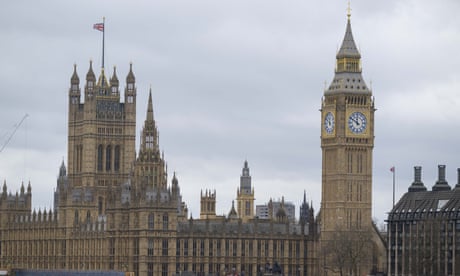
Chinese state-backed hackers were responsible for two malicious digital campaigns targeting the UK’s democratic institutions and politicians, the security services have found.
The UK holds China responsible for a prolonged cyber-attack on the Electoral Commission during which Beijing allegedly accessed the personal details of about 40 million voters.
The National Cyber Security Centre, part of GCHQ, also found that four British parliamentarians who have been critical of Beijing were targeted in a separate attack, although the activity was identified before any systems were compromised.
Two individuals and a front company linked to the Chinese state sponsored cyber-group APT31, which is linked to Chinese ministry of state security and is believed to have been behind the hack, have been hit with sanctions by the UK as a result.
Oliver Dowden, the deputy prime minister, told MPs that Beijing’s attempts to interfere with UK democracy and politics had not been successful, although the government has faced criticism for being too slow to respond.
“The UK will not tolerate malicious cyber-activity targeting our democratic institutions. It is an absolute priority for the UK government to protect our democratic system and values,” he said.
“I hope this statement helps to build wider awareness of how politicians and those involved in our democratic processes around the world are being targeted by state-sponsored cyber-operations. We will continue to call out this activity, holding the Chinese government accountable for its actions.”
Since the attacks in 2021 and 2022, the UK has bolstered its cyber-defences, he said. This included setting up the Defending Democracy Taskforce and bringing in the National Security Act 2023, giving the security services and law enforcement agencies more powers to disrupt hostile activity.
However, the head of an international group of parliamentarians focusing on China said the UK government had been too slow to respond to cyber-attacks, especially given that the Electoral Commission hack was first detected in 2022.
MPs and peers are among 43 people who the government looks set to confirm have been targeted by cyber-attacks backed by the Chinese state.
Luke de Pulford, the executive director of the Inter-Parliamentary Alliance on China (Ipac), told the BBC that the government “was a little bit reluctant to say that China had actually done this”.
“There seems to be a reluctance in general to hold China to account for its abuses,” he said, adding that the UK had thus far imposed sanctions against some middle-level level officials in China over rights abuses in Xinjiang, but had failed to take similar action over Hong Kong, despite the UK’s historical role with the territory.
David Cameron, the foreign secretary, has raised the cyber-attacks on Britain’s democratic institutions directly with the Chinese foreign minister, Wang Yi.
“It is completely unacceptable that China state-affiliated organisations and individuals have targeted our democratic institutions and political processes. While these attempts to interfere with UK democracy have not been successful, we will remain vigilant and resilient to the threats we face,” Cameron said.
“We will always defend ourselves from those who seek to threaten the freedoms that underpin our values and democracy. One of the reasons that it is important to make this statement is that other countries should see the detail of threats that our systems and democracies face.”